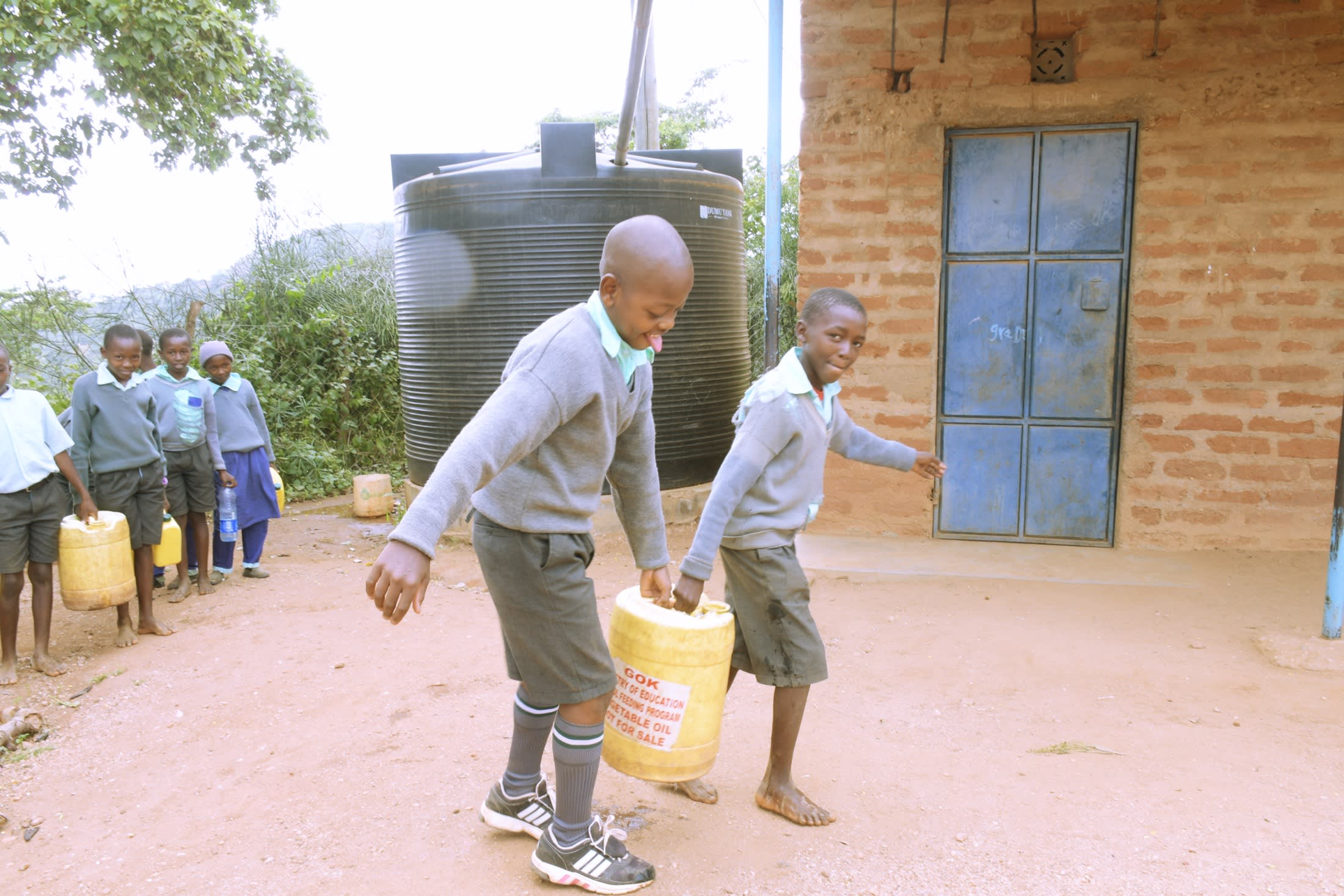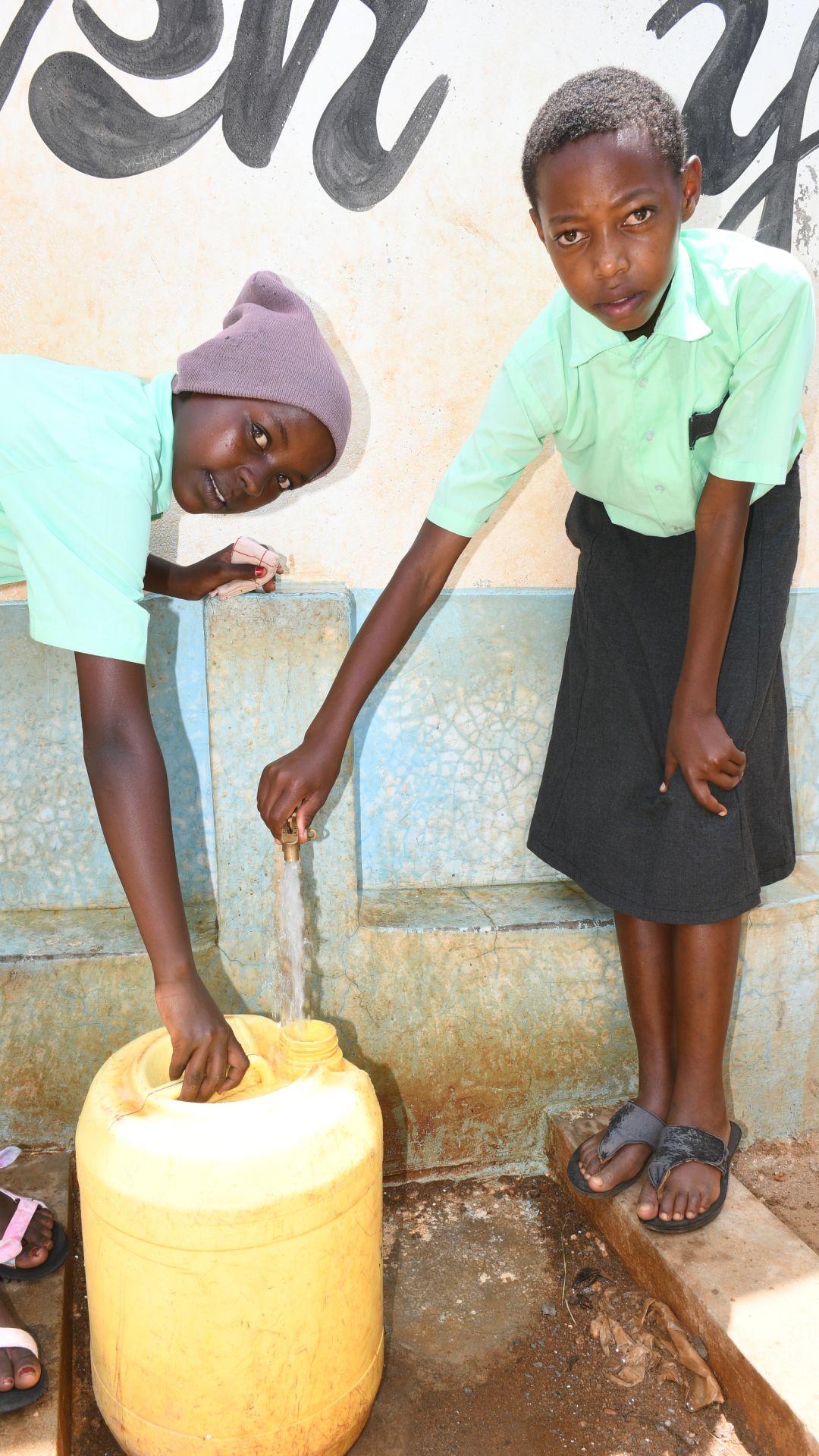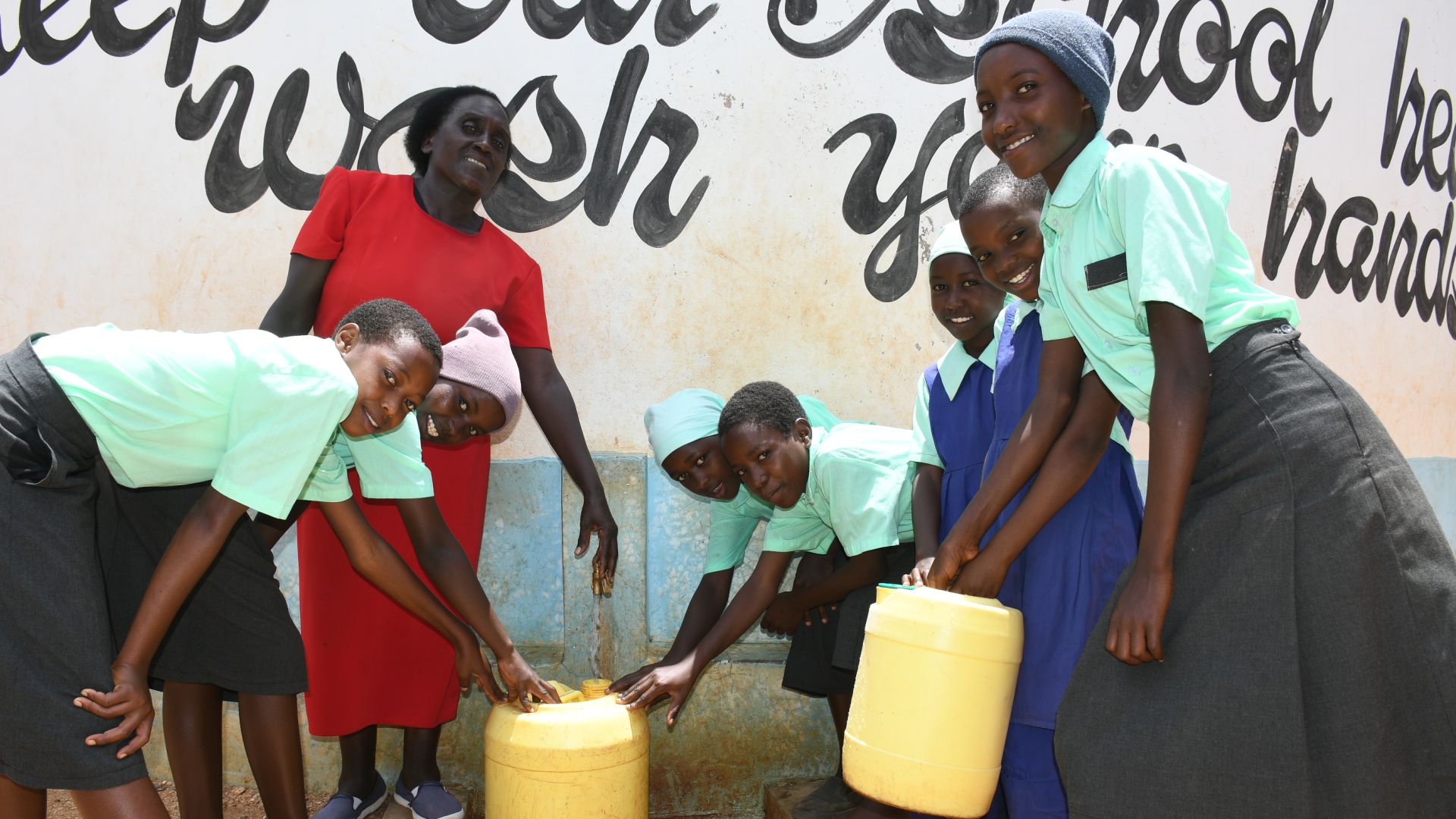The 141 staff and students of Musola Primary School struggle to access safe, sufficient water daily. They have a small rainwater tank on the premises, but it's never enough. Students are then required to bring water to school each morning, but that water is also used quickly. The water crisis extends past the walls of the school compound, leaving children with few options to find the precious resource when they have none left.

Field Officer Jefferson Mutie shared, "Access to safe water and sanitation still remains a barrier to the future of millions of school-going children across the continent of Africa despite it being a fundamental human right. It is estimated that these young minds lose 443 million school days each year due to water-related illnesses. Musola Primary School is located in an arid [area], and because of perennial droughts, most rivers and streams have dried up. The school does not have a reliable source of safe water for drinking, and they are forced to depend on rainwater collection, which runs dry very fast."
"When water from the tanks dries, pupils are mandated to bring water from home as they report to school every single morning. This has led to a lot of his students missing school because they sometimes have to walk long distances in search of water, and by the time they get back, they are too tired to attend classes. Sometimes, even when they do manage to attend class, they are too tired to concentrate, which significantly affects their school performance," he continued.

Children bear the burden of water collection, which is too heavy a weight for their shoulders. Some children in the school have many absent days because they sleep down by the river waiting for their turn to collect.
"Sometimes I do miss school whenever I fail to get the requested amount of water to carry to school for the next day. The pressure to carry water is very high, and no one is allowed to depend on other people's water in the school. Having a water tank in the school will tell me that I no longer don't need to fail to attend school but have classes for full time as well as having good time to play and refresh," shared 11-year-old Simon K.

Teachers whose job is to help their students prosper, which they can't do without safe, accessible water watch their students suffer every day.
Teacher Rachael Mbevo, 40, shown below, shared how the water crisis has affected her at the school. "My profession is hit hard due to [the] water situation in the school. As a teacher and a human being too, I have [a] heart for my pupils struggling to get water for drinking in the school."

"Due to the dusty classes, we [are] often left sneezing around as we lack water to sprinkle the dust away. My life would be very okay, as well as that of my pupils if we could get more water assured to us. I hope to teach my pupils to do very well when we get water. It is my joy to see them prosper in life," she continued.
Not only do the students of the Musola Primary scrounge for enough water, but the water they do collect is often unsafe when it is brought from outside sources.
"Water brought from home by the pupils is very dangerous and dirty; many keep on complaining about stomach-related problems starting from drinking dirty water," said Jefferson.
The installation of the 104,000-liter rainwater tank will make it possible to collect and store sufficient water to meet the school's needs. This will enable students and staff alike to shed the burden of water scarcity in school. Children like Simon will no longer have to track down unsafe water to bring to school, giving him back energy and time once lost to finding water. Teachers like Rachael will be able to help their students thrive in their education, hopefully no longer being afflicted by waterborne illnesses.
Water at schools is unique, which is why we need unique solutions.
The Proposed Solution, Determined Together...
At The Water Project, everyone has a part in conversations and solutions. We operate in transparency, believing it benefits everyone. We expect reliability from one another as well as our water solutions. Everyone involved makes this possible through hard work and dedication.
In a joint discovery process, community members determine their most advantageous water solution alongside our technical experts. Read more specifics about this solution on the What We're Building tab of this project page. Then, community members lend their support by collecting needed construction materials (sometimes for months ahead of time!), providing labor alongside our artisans, sheltering and feeding the builders, and supplying additional resources.
Water Access for Everyone
This water project is one piece in a large puzzle. In Kenya, Sierra Leone, and Uganda, we're working toward complete coverage of reliable, maintained water sources that guarantee public access now and in the future within a 30-minute round trip for each community, household, school, and health center. One day, we hope to report that this has been achieved!
Training on Health, Hygiene & More
With the community's input, we've identified topics where training will increase positive health outcomes at personal, household, and community levels. We'll coordinate with them to find the best training date. Some examples of what we train communities on are:
- Improved hygiene, health, and sanitation habits
- Safe water handling, storage & treatment
- Disease prevention and proper handwashing
- Income-generation
- Community leadership, governance, & election of a water committee
- Operation and maintenance of the water point
Handwashing Stations
Alongside each water source in Southeast Kenya schools, we also provide three new handwashing stations fitted with three taps each, allowing nine students to wash their hands at once. These will allow everyone at the school to wash their hands without running water. Handwashing is so important to help prevent future water-related illnesses in the school community.
The student health club will maintain the stations, fill them with water, and supply them with soap (which we will teach the school community how to make during the training!).





 Rainwater Catchment
Rainwater Catchment
 Rehabilitation Project
Rehabilitation Project


























